Iran, P4+1 group of countries resume Vienna talks after short pause
Iran and the five remaining signatories to the 2015 Iran deal have resumed the eighth round of talks in the Austrian capital city of Vienna after the parties took a three-day break for the New Year.
Representatives of Iran and the P4+1 group of countries -- Britain, France, Germany, Russia and China -- began the eighth round of the Vienna talks on December 27 focused on the removal of all sanctions imposed on Tehran after Washington's unilateral withdrawal from the agreement. The US is not allowed to directly attend the talks due to its pullout in 2018 from the landmark deal with Iran.
According to Iran’s official IRNA news agency, Iran's chief negotiator Ali Bagheri Kani arrived in Vienna earlier on Monday and held a meeting with Enrique Mora, European Union's deputy foreign policy chief and head of the Joint Commission of the Iran deal, officially known as the Joint Comprehensive Plan of Action (JCPOA).
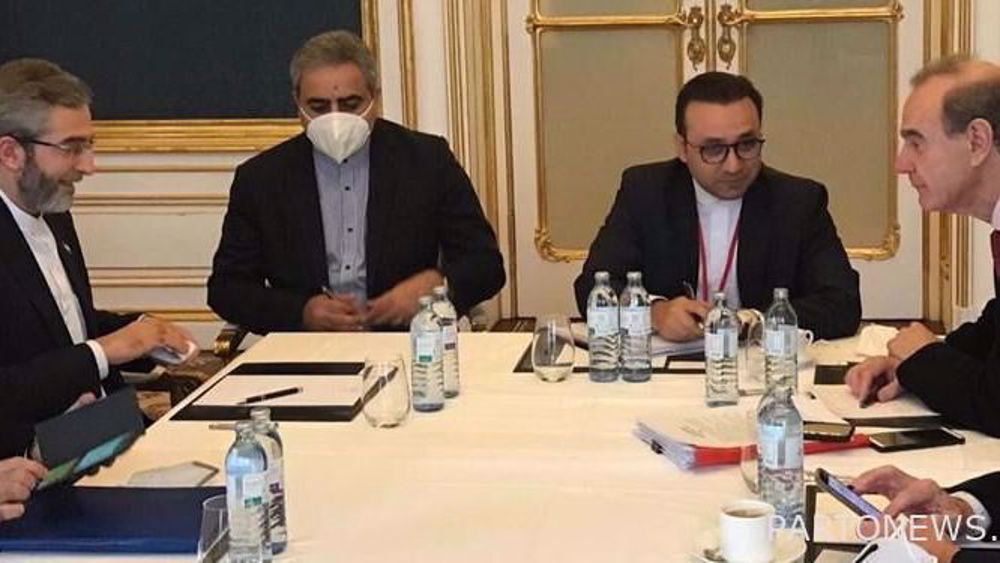
Bagheri Kani, who serves as Iran's deputy foreign minister for international affairs, also held talks with senior officials of other participating countries.
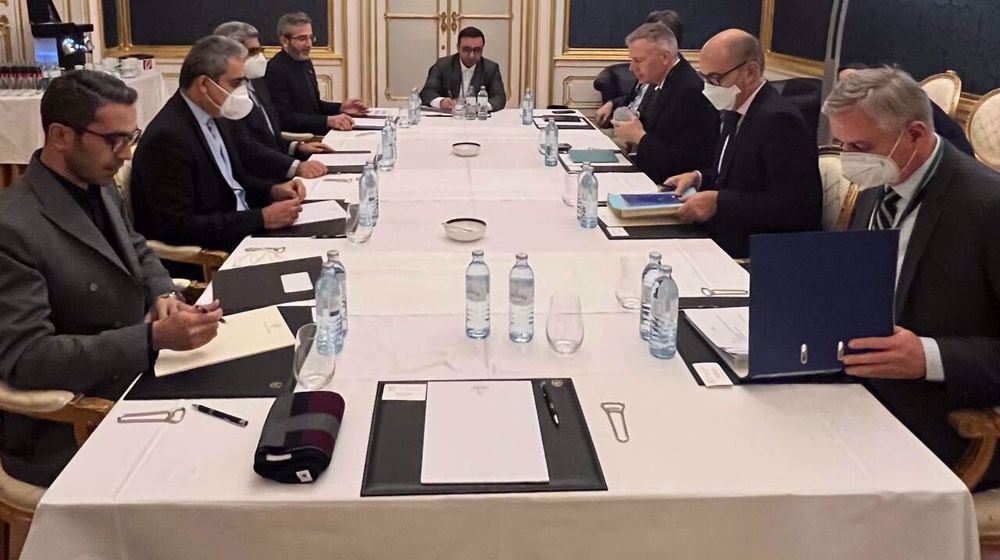
Earlier in the day, the Russian ambassador to international organizations in Vienna, Mikhail Ulyanov, said in a tweet that the eighth round of talks would resume in the "form of informal meetings."
After a short New Year break the 8th round of the #ViennaTalks continues today in the form of informal meetings.
— Mikhail Ulyanov (@Amb_Ulyanov) January 3, 2022
Speaking to reporters on Thursday before leaving Vienna for Tehran, the top Iranian negotiator said during the eighth round of negotiations good progress was made with regard to the removal of sanctions and subsequent verification of sanctions removal.
“The issue of sanctions removal was the main focus of the talks. Iran and the other side continued their negotiations on multiple issues, including a number of sessions on the verification of sanctions removal. The meetings were attended by both the coordinator of the joint commission of the JCPOA and the European side," he said.
Iranian Foreign Ministry spokesman Saeed Khatibzadeh also said on Monday that the western parties to the JCPOA have realized that they have to back down from their “maximalist demands” during the ongoing Vienna negotiations.
“If we have a common text today, that’s because the Western side realized that it must back down from its maximalist demands, and what we have today (the text) is a result of the Western parties’ realization in the Vienna talks that they cannot demand anything beyond the JCPOA on the nuclear issue and implement less commitments to lifting sanctions than those stipulated under the JCPOA,” Khatibzadeh said.
During the previous round of the talks, the first under Iran's new President Ebrahim Raeisi, Iran presented new proposals at the negotiating table to help the talks move forward and later criticized the European signatories of the JCPOA for failing to follow suit and remaining passive.
Iran and the five remaining parties to the JCPOA resumed the talks in Vienna on November 29 after a five-month hiatus.
Iran and the P4+1 group of countries sat down for talks in the Austrian capital on December 9 following a pause on December 3, when the participants returned to their capitals for additional consultations on the two draft proposals that Tehran had put forward.
One year after Washington’s exit from the deal and the failure of the European signatories to uphold their commitments under pressure from the US, Iran took a set of retaliatory steps away from the deal in several stages in line with its legal contractual rights.
With a new administration on office in the US, Washington says it wants to rejoin the deal, but it has been dragging its feet in removing the sanctions on Iran.
Tehran has been firmly insisting that the US must first remove the sanctions in a verifiable manner, give guarantees that it will not leave the agreement again, and compensate for all the damages inflicted on Iran due to its unlawful pullout.
VIDEO | Former FBI agent criticizes US Congress for 'outright corruption'
IRGC chief urges Muslim countries to cut aid routes to Israel
'New chapter in cooperation': Iran, Venezuela sing new MoUs
Jordan sentences former lawmaker for supporting Palestinian resistance
Basij volunteer forces hold massive drills in southwestern Iran
Israeli war criminals 'not welcome', US city says after ICC ruling
US vetoing of Gaza ceasefire resolution ‘disgraceful’: Iran’s UN envoy
VIDEO | IAEA adopts anti-Iran resolution tabled by E3


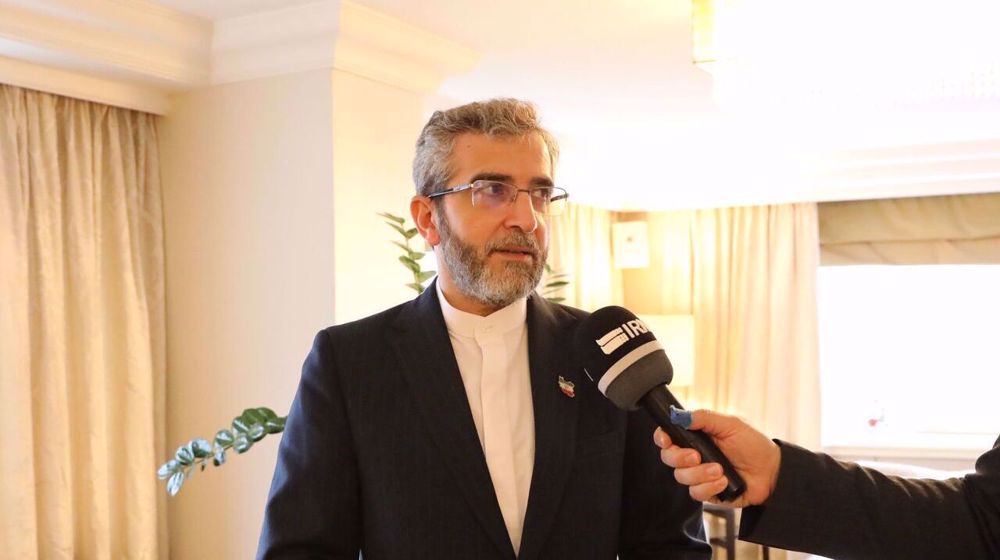
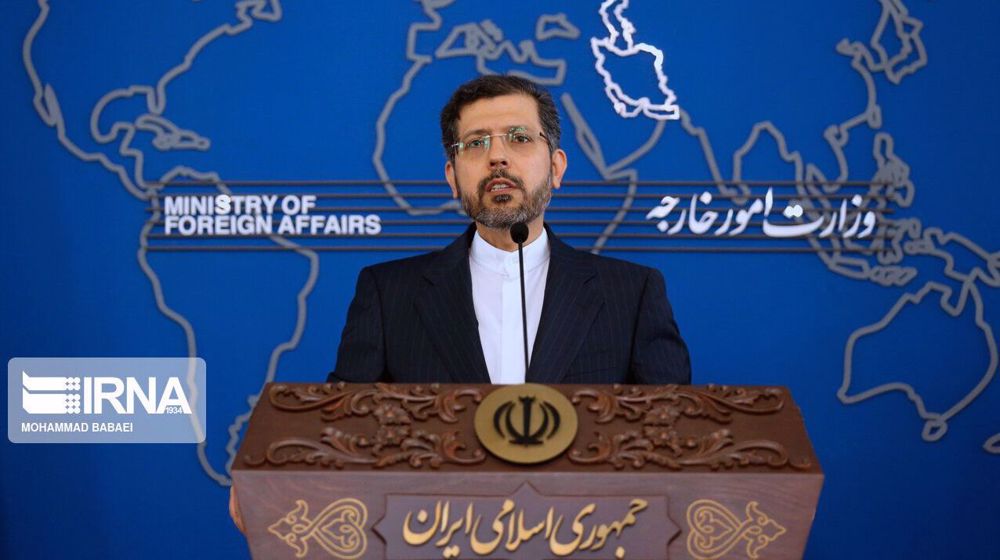
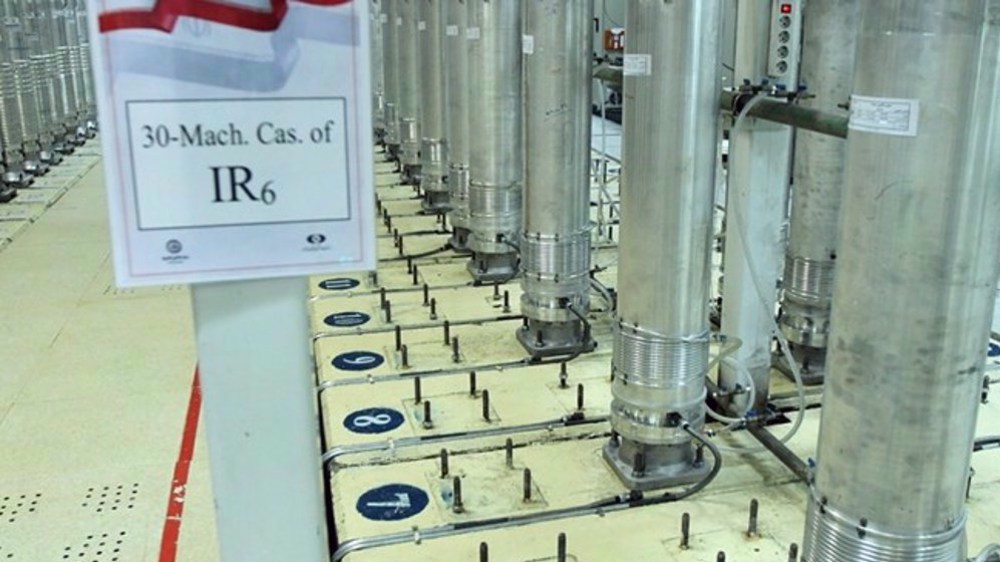
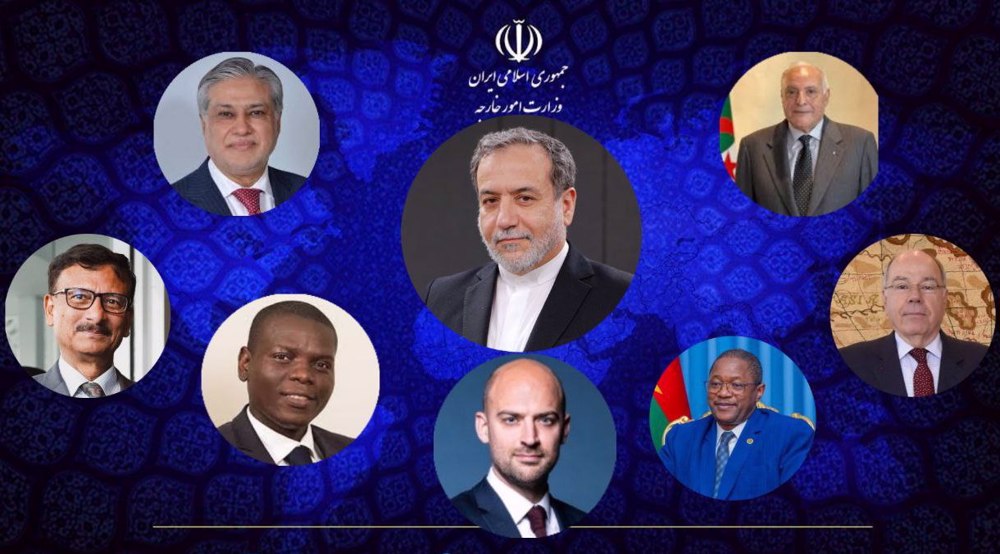
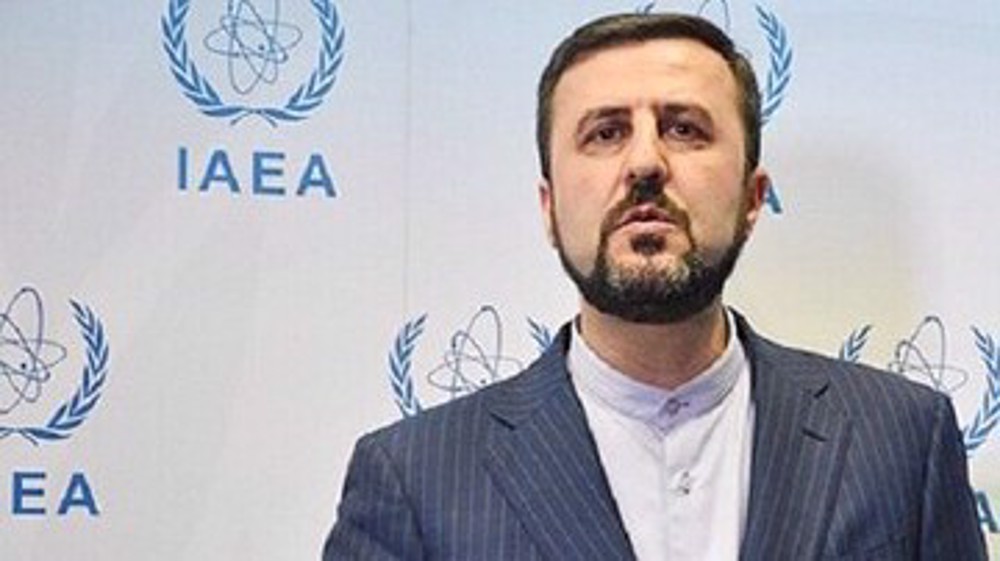




 This makes it easy to access the Press TV website
This makes it easy to access the Press TV website